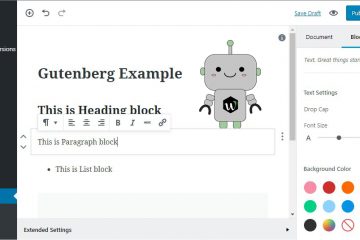Local SEO
The world of businesses has expanded very quickly in a short amount of time so how does the market cope when someone wants a product and the best fit for their search is on the other side of the country or the world? Simple, search engines now use local search results. This not only applies to your country or your zip code but all the way down to your area code. If you’re store or business is the closest, search engines will display you over the rest of the world.
The problem with this is that you have to do a few things to register with Google and be featured on those local results.
So how do you start ranking for local search results?
Local Search Results: Proximity
What local search primarily takes into account is the location. When you go out and you’re looking for a business, maybe get a few drinks at the bar with some old friends, you use your phone to search what’s nearby. What comes up depends on what around and a few other factors that you can influence to put the odds in your favor as a business.
Local Search Results: Google My Business
To even show up, the first thing you need to do is setup a Google My Business account to register your business with the most popular search engine.
We’ve already written a full-length article on how to set up your website with Google My Business. The break down is that you have to submit your business information with Google so they can verify your identity and they will send you a code so you can have your important information (location, phone number address, etc.) featured in a rich snippet when someone searches the name of your business.
Here are the steps to set up your business with Google’s local search.
Local Search Results: Evaluate the Competition
The best thing you can do is see what the competition is doing. If they’re ahead of you in search, go through their site and do a deep analysis. They might be going after more unique keywords in your niche, have a better structure for their site, more appealing images, a lander, or a million other things. You can use this data to constantly keep improving your own site.
After they take the location into consideration, Google wants to find the best business in that location. That’s where SEO comes into play. Make sure your SEO is flawless so you can always beat out the competition.
Local Search Results: Reviews
Once you’ve evaluated the SEO of your site, and then look at the reviews. Does your competition have 5 stars across the board and you don’t even have a single review to your name? If that’s the case, then you need to consider investing some time and effort into getting feedback on sites like Yelp, Trust Pilot, and Google Reviews.
Local Search Results: Posts
Above anything else, visitors need something they can keep coming back to. This is why we have a blog! For us, we can generate traffic for free and you get great tools and information for optimizing your website. This also gives us a platform to constantly post new articles for our fans, giving them a reason to come back for more.
Local Search Results: Google+
Some think this is a dead platform, it is, but it isn’t. Google doesn’t think that it’s a dead platform and that’s good enough. They are extremely biased when it comes to their own projects so when you post something on your Google+ account, it immediately starts to rank. Give it a try. We often post our blog articles to Google+ and see them rank the next day. It’s just a great way to get the juice flowing to your pages.
We recommend posting only items with valuable information. If you only post your products or services, Google will see this as spam and punish you; it’s more for articles and blogs.
Local Search Results: Be Engaged
It’s not enough to make great content and spread it through all your platforms anymore, you have to engage with your audience on a regular basis. That’s why you need to take comments on your site and social media seriously. When someone says they love your product, respond! Tell them “Thank you!”, offer discounts, and make their experience unique and fun.
Not only is this beneficial for your customers, but it allows Google to assess the quality of your website much more easily than traditional ranking methods. When you have positive customer interactions, search engines can see this and rank you far above sites with negative, neutral, or no reviews at all.


